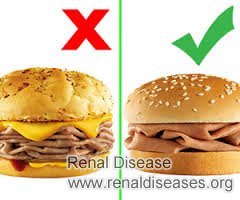Whatsapp: +8615512139310
- Email us:
 Fast food become more and more popular in the modern life and also be favored by most young people and kids. However, as for a Polycytsic Kidney Disease patient, he or she has to consider clearly due to strict dietary requirements. Well then, can PKD patients eat fast food? What fast food are OK to eat with the disease?
Fast food become more and more popular in the modern life and also be favored by most young people and kids. However, as for a Polycytsic Kidney Disease patient, he or she has to consider clearly due to strict dietary requirements. Well then, can PKD patients eat fast food? What fast food are OK to eat with the disease?
Now, let’s see the dietary principles for PKD patients.
PKD, known as the genetic disorders, is characterized with multiple fluid-filled sacs growing the kidneys. Cysts on the kidney, over time, will increase and enlarge. When cysts become big enough, it will oppress the surrounding tissues and cells, triggering numerous symptoms. In order to control the development of illness condition, patients have to develop kidney-friendly diet plan. Generally speaking, a low-protein diet, low-sodium diet, low phosphorus foods, low potassium diet can be recommended to patients.
Can patients eat fast food with PKD?
Actually, no matter what kind of diet you’ re on, fast food is usually not included on the list of healthy things to eat. Hamburgers are the common fast food. They contains much fat and calories which can increase the renal burden even may worsen patients kidney disease. The saturated fats intake also can increase the risk of cardiovascular disorders which is one of leading causes of death. Therefore, patients should keep away from hamburgers. Ketchup is also the common sauce when you eat chips. Aside from the tomatoes content, it also is rich in sodium. Too much intake will worsen swelling and raise blood pressure. In addition, fired chicken is also popular fast food. For PKD patients, they should limit intake or even avoid.
However, fast food doesn’t necessarily have to be avoided by PKD patients. To be honest, if you like eating fast food, you can cook by yourself according to your illness condition. It’s my duty to tell that you should pay high attention to the food that high in protein, salt, potassium and phosphorus.
Any questions, please leave a message below directly or email to renal-disease@hotmail.com and we will do our best to help you.